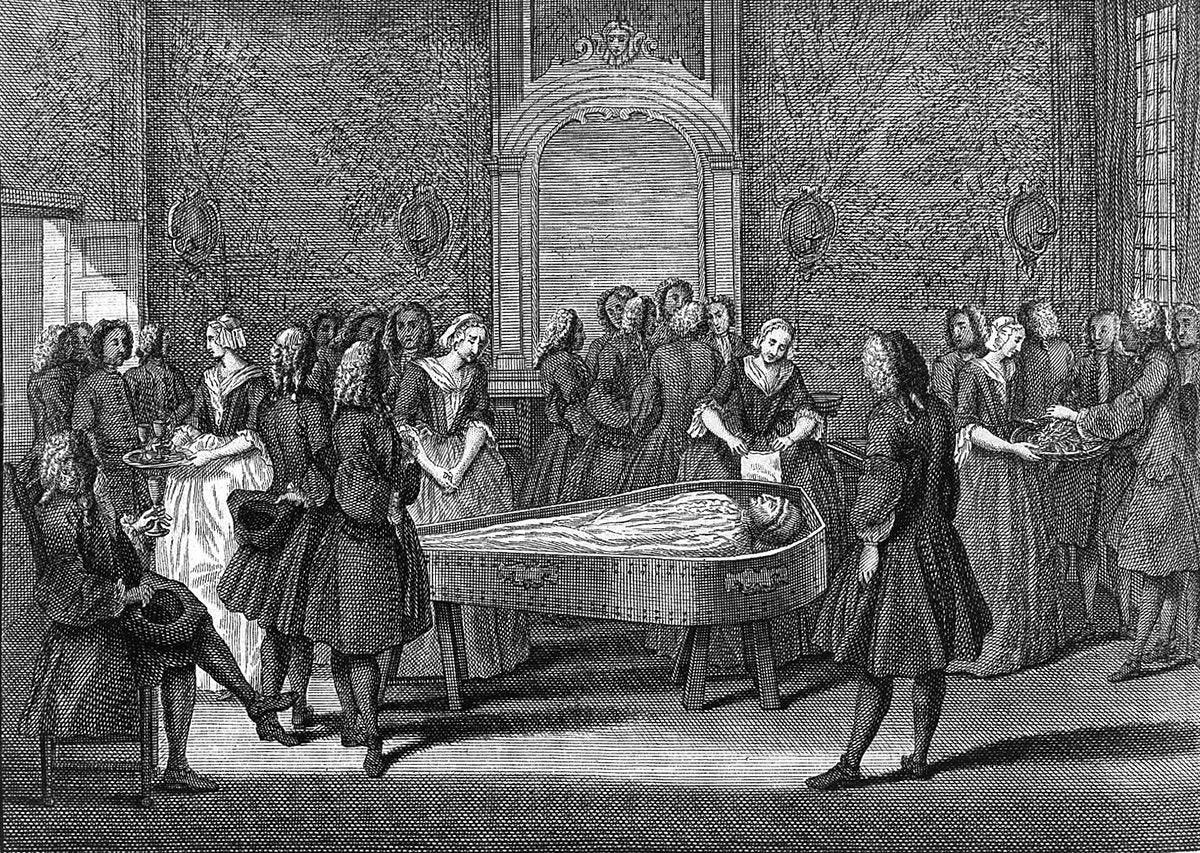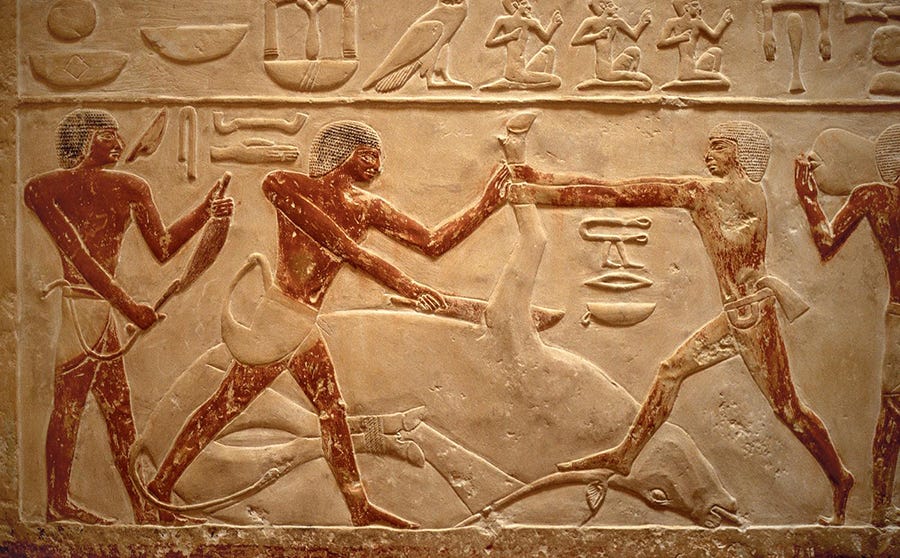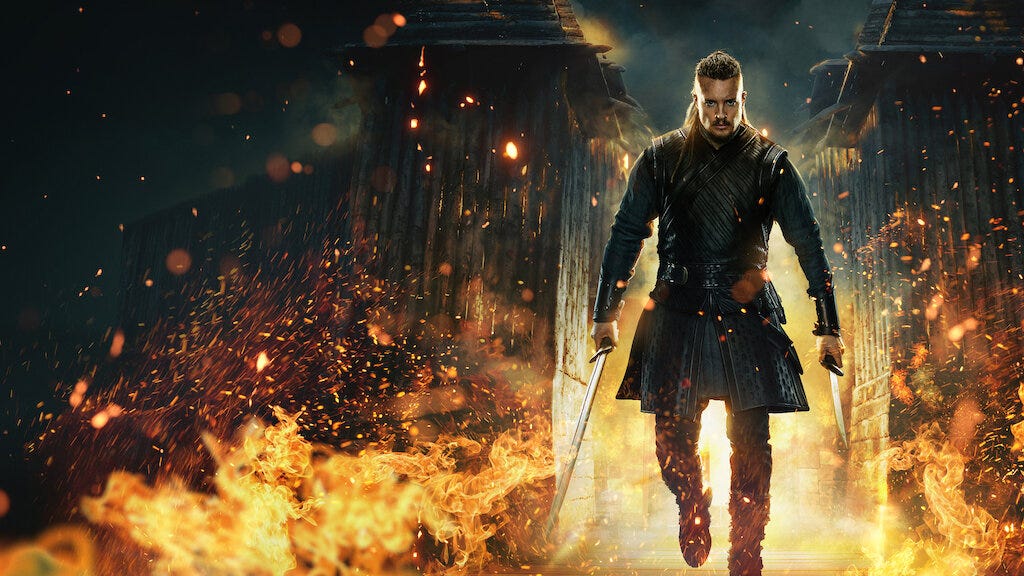Weekly Roundup- April 15th
Sin eating, drugs, large quantities of beer- just need the rock and roll. Here are our digital finds past from the past week.
When ‘Dumb’ Beasts Raise Their Voices: Speaking Animals in Ancient Graeco-Roman and Near Eastern Literature
In ancient Greek, Roman, Egyptian, and Mesopotamian texts we have examples of direct speak from the mouth of animals, usually in a jocular manner. What purpose(s) did animal speech play in these cultures? Click the link above to read more.

One piece of Egyptian literature comes to mind in particular: The Shipwrecked Sailor. An Egyptian sailor is shipwrecked on a *magical* island far away from Egypt and meets a powerful serpent. The serpent speaks to the sailor saying:
Who brought you here? Who brought you here? If you delay in telling me who brought you to this island, I shall cause that you know yourself to be as ash, you having become as that which no ones sees.
The serpent then takes the sailor in his mouth and slithers off back to his place… Want to find out how the story of shipwreck and drama ends? Find the full translation here.
Was the Acropolis a Harem? A Myth of Orientalism
Now this is a great read! The myth that the Ottomans made the Acropolis into a Harem was created and perpetuated by British and French tourists in the region who never even entered the space- an orientalist idea! But what is Orientalism? Western Europe at the time (and still today) viewed the “East” as the exotic (read: lesser) other. This concept, discussed by Edward Said, maintains the superiority of the West over the East through cultural domination. Orientalism supports stereotypes of the peoples of Africa and Asia as “lazy”, “exotic”, and “despotic,” making the West’s interference in the areas needed.

Egyptology, too, fell prey to Orientalist and colonialist notions, with attempts currently being made to acknowledge our unsavory past and move the field forward in a more inclusive way. Clearly, we have to revisit many old ideas, like the Ottoman’s using the Acropolis as a harem…
NYU Institute for the Fine Arts Lecture: Beer for the God-King? New Excavations at Abydos, Egypt with Matthew Adams and Deborah Vischak
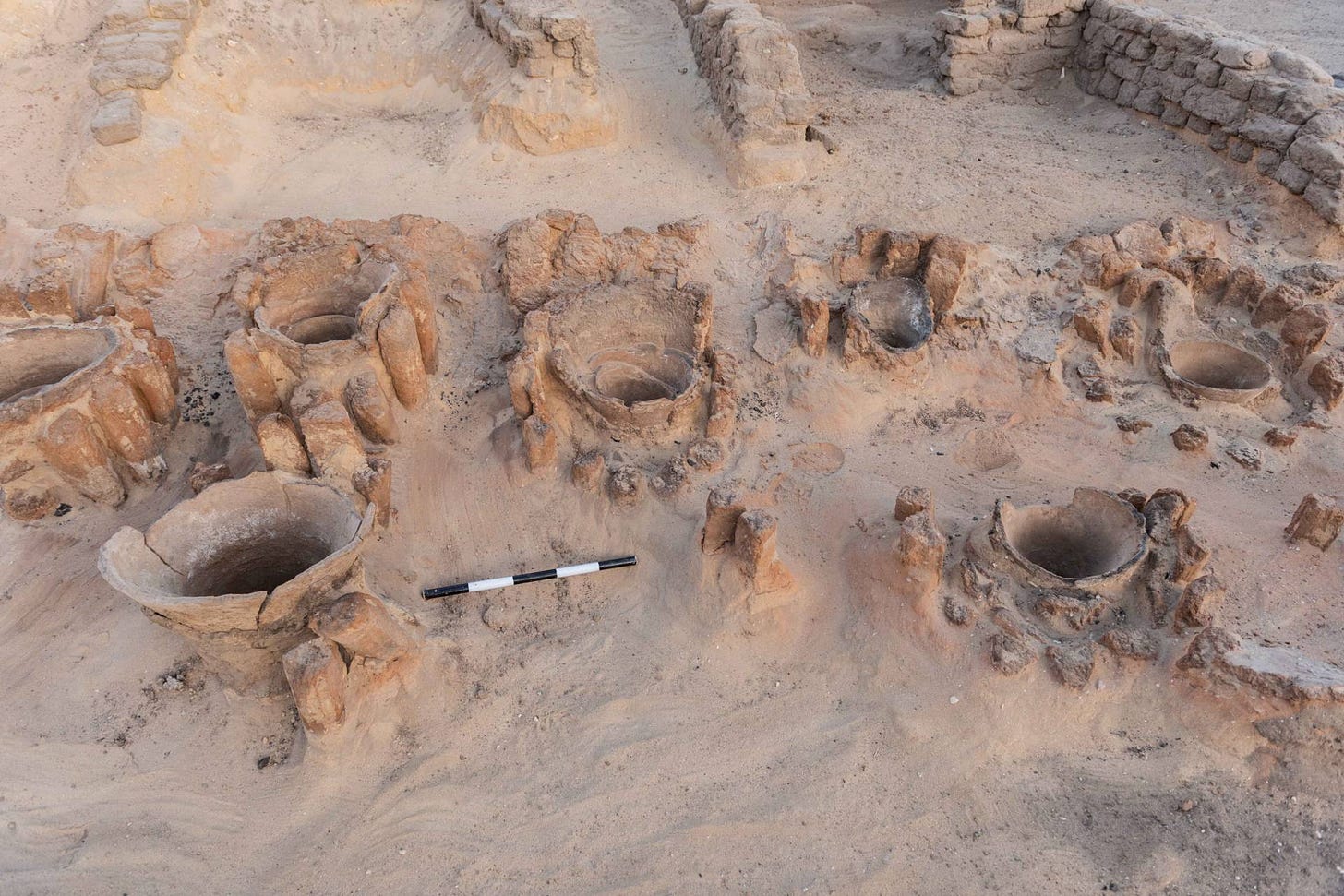
The Institute has sponsored excavations at Abydos, one of Egypt’s most important sites, since 1997. The site was the ancestral home and burial place of Egypt’s first kings. Later, as the primary cult place of the god Osiris, ruler of the land of the dead, it became a religious center of singular significance and a place of pilgrimage for many centuries. Investigating the nature of early royal activity at Abydos and how it shaped the site’s subsequent history are central questions of the Abydos project’s fieldwork program.
A current research initiative is focused on the remains of a brewery of unparalleled proportions for both ancient Egypt and the ancient world more broadly. Abydos project director Matthew Adams will share with the Institute community the results from excavations at the brewery, including from the just-concluded 2022 field season.
For more information about the recent discoveries, see Princeton’s post.
Interested in attending: RSVP Here
The Worst Freelance Gig in History Was Being the Village Sin Eater
You think your job sucks? Imagine having to eat your neighbor’s sins for a living. During the 18th and 19th centuries in what is today the United Kingdom, Sin Eaters were hired by a deceased family to eat a piece of bread that had ceremonially absorbed the sins of the deceased.
The Egyptians had slightly similar ways of ensuring their family members accessed the afterlife successfully as well. Within Egyptian religious thought, the deceased heart would be weighed against the feather of Maat (truth, justice, righteousness). If their heart was lighter (i.e. they were a morally good person in life) they could proceed into the afterlife. If, however, their heart was heavier than the feather the fearsome demon Amitt would devour their soul. To ensure your family member didn’t have to contend with Amit (made famous lately in Marvel’s Moon Knight) you would provide them with amulets, spells, and Book of the Dead chapters to guide them on their way.
From Opium to Saffron, the Ancients Knew a Thing or Two About Drugs
The ancient world was not a sterile, sober place. From Cypriot jars in the shape of Poppy (opium) buds to Saffron eating by the ancient Minoans to mandrake aphrodisiacs—drugs and alcohols were used aplenty by ancient cultures. These mind-altering substances were used for a variety of purposes, most notably in ideological charged rituals to bring the individual to supra-human realm.
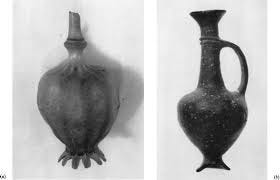
Check out the new Routledge series, “Ecstatic Experiences in the Ancient World” to read more.
Archaeologists discover oldest social network using ostrich egg beads
Climate change effecting our social networks is not a new phenomenon!
Researchers from the Max Planck Institute have discovered evidence of a vast social network dating back 30-50 k years ago. Beads made from ostrich eggs have been found across eastern and southern Africa. The beads were manufactured using the same processes which the researcher argue indicates a vast social network. The study also found the climate change would later disrupt this trade and the associated social network and separate the various cultures.
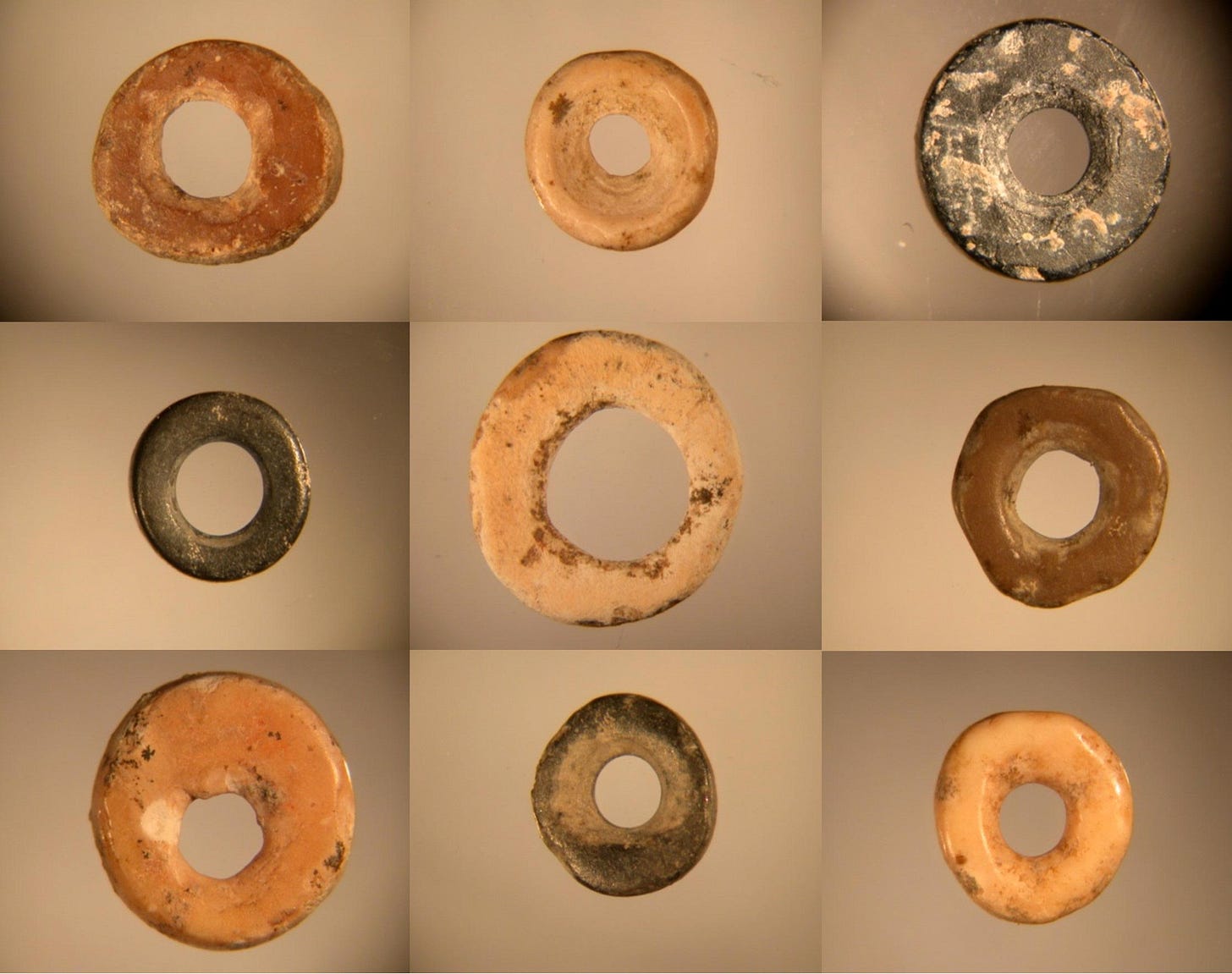
Digital Egyptology- MastaBase now online!
Want to take a peak at an Old Kingdom hunting scene? Can’t visit Egypt right now, but want to take a virtual trip? A new database cataloguing all Old Kingdom ‘daily life’ tomb scenes is now available for Open Access downloading. Yes, Mastabase sounds a bit like…but—it’s an amazing resource.
What are We Reading, Watching, Listening to this Week:
Jordan is watching the most recent season of The Last Kingdom on Netflix. The show takes places in the 9th c. CE during the foundations of the Anglo-Saxon kingdom, showing the political and military dealings of the Angles, Saxons, and Vikings in England. If you were a fan of Game of Thrones, you will love this show. Plus the main character is rather easy on the eyes…
I’ve also been a fan of historical dramas and I find this show especially entertaining. I recently learned the the author of the books (Bernard Cornwell, The Saxon Stories) of which the show is based is related to the main character of the show. He is an historian by trade and found his relation while doing genealogy research and was so enamored by his role in English history that he decided to write a fictionalize narrative.
I wish I had such interesting relatives…
Meanwhile, Kara is busy with teaching responsibilities:
I am reading all the student papers (dissertations, prospectus, seminar papers) and watching the Dodgers games because is that is what we do in this household. Remy (my husband) says, “Go Dodgers!”




